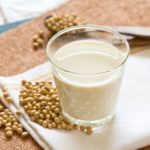It’s about preserving cognitive function as we enter the latter stages of middle age and begin to experience cognitive decline. But it appears that only women reap the benefits of egg consumption.
In a recent study, researchers from the University of California, San Diego, explored the relationship between eating eggs and cognitive function over time. The study included 890 participants aged 55 and over, who provided information about their diets, including egg consumption frequency, as well as their lifestyles and medical histories.
The participants were grouped based on their egg intake:
– Never ate eggs
– Ate 1-2 eggs/week
– Ate 2-4 eggs/week
– Ate 5 or more eggs/week
Their cognitive function was assessed using three tests: a global cognitive function test, a mental flexibility and attention test, and a memory test.
Results revealed that eating eggs was associated with better cognitive performance in women, with no adverse effects observed. Notably, those who consumed five eggs per week showed the most significant benefits compared to non-egg eaters, as reported by News Medical.

This was particularly evident in their verbal fluency, a key aspect of communication. However, the study found no significant cognitive benefits of egg consumption in men.
The findings carry significant weight as cognitive decline, which can lead to Alzheimer’s and other brain disorders, remains a pressing issue for scientists worldwide. Despite efforts, no effective treatments or preventative measures have been established to combat Alzheimer’s and initial cognitive decline.
Therefore, focusing on preventative measures is crucial. Eating eggs could be one of the simplest solutions, despite concerns over their cholesterol content. Recent studies suggest that moderate egg consumption does not negatively impact health but instead offers protection against various chronic illnesses.
Eggs are nutrient-dense, containing carotenoids and choline, which are known to support brain health. Most health guidelines recommend a maximum of one egg per day.
Tips for Cooking Eggs for Better Health:
1. Opt for lower-calorie cooking methods: If you’re conscious about calorie intake, boiling or poaching are ideal. These methods don’t add extra fat calories, resulting in a lower-calorie meal compared to fried eggs.
2. Pair them with vegetables: It’s a great way to increase your vegetable intake and boost the fiber and vitamin content of your meal.
3. Use heat-stable oils for frying: The best oils for cooking are those that remain stable at high temperatures and don’t oxidize easily, forming harmful free radicals. Examples include sunflower oil and butter. If using olive or virgin coconut oil, consider cooking at lower temperatures.
4. Choose the most nutrient-rich eggs: Factors like the chicken’s diet and living conditions impact the nutritional value of eggs. Generally, eggs from pasture-raised or organic chickens are more nutritious than those from factory-farmed birds.
5. Avoid overcooking: The longer and hotter you cook eggs, the more nutrients are lost. Overcooking can also increase the amount of oxidized cholesterol in the eggs, which isn’t beneficial for health.
1. Healthy Weight Management: Eggs are filling and can help curb appetite, making them a great choice for weight management. They are low in calories yet high in protein, which helps promote a lean body composition.
2. Beautiful Skin and Hair: The protein and biotin in eggs contribute to strong, healthy hair and nails. The antioxidants lutein and zeaxanthin present in eggs also promote eye health and may reduce the risk of age-related macular degeneration.
3. Improved Heart Health: Despite their cholesterol content, studies suggest that eating up to one egg per day does not increase the risk of heart disease in most people. In fact, the antioxidants and anti-inflammatory compounds in eggs may improve heart health.
4. Lower Cancer Risk: The choline in eggs is associated with a reduced risk of breast cancer in women. Choline also supports liver function and brain health.
5. Bone Strength: Eggs are a source of vitamin D and calcium, both essential for maintaining strong bones and reducing the risk of osteoporosis.
High Cholesterol: Eggs are high in dietary cholesterol, with one large egg containing about 186 mg of cholesterol, primarily found in the yolk. However, the effect of dietary cholesterol on blood cholesterol levels varies from person to person. For most healthy individuals, the body compensates by reducing the production of cholesterol, so eating eggs in moderation is generally considered safe.
Allergic Reactions: Some people may have an egg allergy, which can cause symptoms ranging from mild to severe. Symptoms can include skin rashes, hives, nasal congestion, vomiting, and in rare cases, anaphylaxis. It is important to consult a doctor or dietitian if you suspect an allergy.
Biotin Interference: Raw egg whites contain a protein called avidin, which binds to biotin (vitamin B7) and inhibits its absorption. However, this is not a concern when eggs are cooked, as the avidin is denatured, and biotin becomes available for absorption. Therefore, it is recommended to cook eggs to ensure adequate biotin intake.
– Start the day with a nutritious breakfast by scrambling, boiling, or poaching eggs. Serve them with wholegrain toast, avocado, or a side of vegetables for a well-rounded meal.
– Make omelets or frittatas packed with vegetables, herbs, and cheese. These can be enjoyed for breakfast, lunch, or dinner and are a great way to add extra nutrients to your diet.
– Hard-boil eggs and keep them in the fridge for a quick, healthy snack on the go. They can also be chopped and added to salads for a protein boost.
– Use eggs as a binding agent in burgers, meatloaf, or fish cakes to add moisture and hold the ingredients together.
– Try egg-based dishes from around the world, like shakshuka (a North African dish of poached eggs in a spicy tomato sauce) or okonomiyaki (a Japanese savory pancake).
– For a sweet treat, bake eggs into custards, cheesecakes, or flourless chocolate cakes.
Combat Stress with These 6 Foods
Ease your worries and enhance your well-being with these 6 “superfoods.” The 21st century has certainly introduced a host of stressful situations, but incorporating these nutritious meals into your routine can provide quick relief and greater contentment. Find out how these healthful eats can help you live healthier and happier.
Unlock Benefits of Meowington’s Meow-tastic Feline Elixir for an Exciting Feverish High
Vietnamese people’s fondness for mangoes is well-known, and they are more than just delicious tropical fruit. Not only do mangoes boast a sweet and sour taste that make them popular for both snacking and cooking, but they also offer a host of health benefits to those who consume them. Originating from Africa, mangoes are now widely grown in both Asia and Latin America.



































